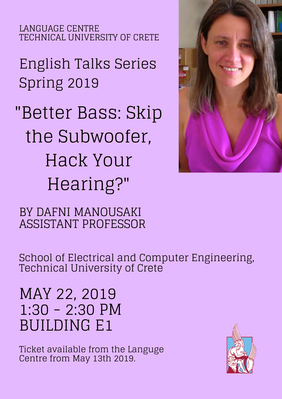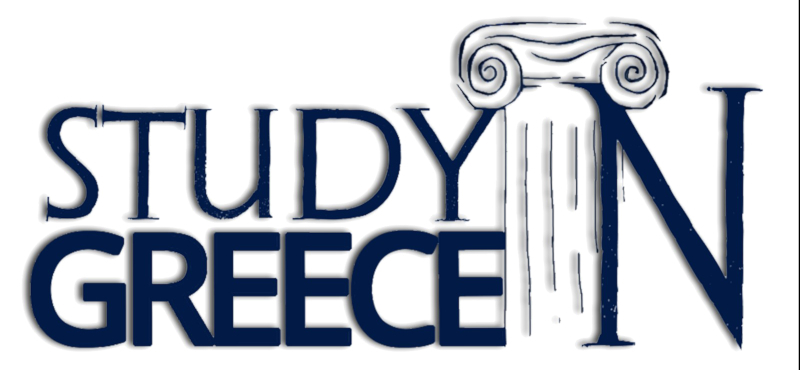Dr. Manousaki was a guest speaker at the Language Centre with the final talk of this year's English Talks Series, entitled “Better Bass: Skip the Subwoofer, Hack Your Hearing?” She presented for the first time in our university her research on the significance of the cochlea’s spiral shape on low frequency sound perception.
Daphne Manoussaki received her Bachelor of Arts in Mathematics from the University of Oxford (honours) and her M.Sc. and Ph.D. in Applied Mathematics from the University of Washington in Seattle. She then joined NIH where she spent two years as a Visiting Fellow at Laboratory for Cellular Biology (Section on Auditory Mechanics) of the National Institute on Deafness and Other Communication Disorders. During 1999-2000 she worked at the Institute for Neuroradiology at the University Hospital of the University of Zurich, and collaborated with the Institute for Fluid Mechanics, at MAVT, ETHZ. In 2000 she returned to Greece where she held visiting faculty appointments at the Department of Applied Mathematics, University of Crete (Heraklion) and the Department of Sciences, Technical University of Crete (Hania).
In 2004 she joined the Department of Mathematics at Vanderbilt University as a tenure track Assistant Professor, where she taught until 2006. In 2006 she joined the Department of Sciences at the Technical University of Crete, and since 2013 she is a faculty member at the Department of Electronic and Computer Engineering.
Daphne Manoussaki has received awards for her research from the French Society for Theoretical Biology (Pierre Delattre Prize), from the National Institute on Deafness and Other Communication Disorders (NIH) and the Chancellor’s prize at Vanderbilt University. Her research on the significance of the cochlea’s spiral shape on low frequency sound perception has been highlighted by numerous scientific magazines and societies (Discover Magazine top 100 science stories & top 2 math stories 2006, Nature Physics highlights, Physical Review Focus, PNAS highlights, κλπ.)
Her current research interests include cell mechanics and angiogenesis.









